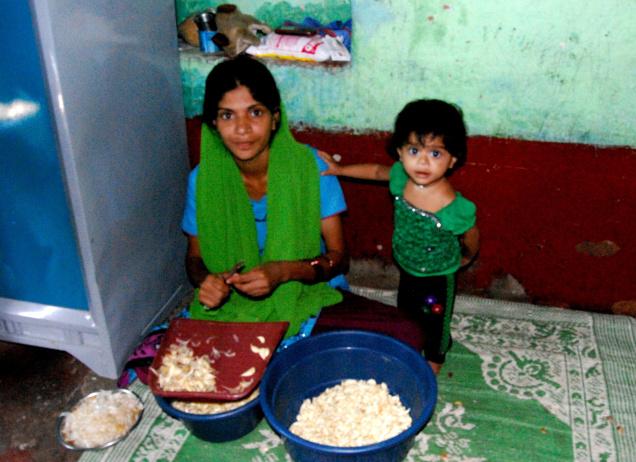Bangalore: Public discourse around the death of a five-year-old malnourished child Meghala in July last year had appeared finally to shine the spotlight on the dark living conditions in Devarjeevanahalli, a densely-populated low-income pocket of east Bangalore. But, five months later, little appears to have changed on the ground.
Since then, there have been two more deaths recorded here among children identified as ‘severely and acutely malnourished’ (SAM). Tharun, (4), died in October last year and Jennifer (6), died this month, apart from one more child who died in an accident. The two children died even as their families struggled to access health care and lived entirely outside the State’s welfare net, attest government health ‘link’ workers.
This, despite the fact that the government had promised in the State legislature that families of all SAM children would at least be given a below poverty line (BPL) card to enable them to access subsidised rations, fuel and healthcare.
Both Tharun and Jennifer were mentally-challenged. However, neither received a disability pension (a monthly allowance of Rs. 1,200/600) nor did their families have BPL cards.
Primary Health Centre (PHC) records show that both were sick and had been referred to NIMHANS, better equipped to deal with their conditions. But the families did not consult there as they couldn’t afford the frequent travel to Koramangala, says a ‘link’ worker.
The deaths indicate that Meghala’s was no case in isolation. Like her mother Murugamma (37), who has since received an AAY card and became eligible for disability pension 30 years after fever claimed her eyesight, thousands of working poor here live with no access to a majority of welfare schemes.
Above district average
In fact, at last count, D J Halli Primary Health Centre (PHC) records show that 77 children have been identified as SAM here, of which at least 50 households do not have BPL cards. DJ Halli and Muneswaranagar, two wards with a population of 77,707, have 2,610 children aged below six.
In all, Bangalore Urban has 1,550 ‘severely underweight’ accounting for 1.4 per cent of children under the age of six. Given that the numbers of SAM children here stands at 2.95 per cent, well above the district average, officials concede this is a “problem area with conditions worse than elsewhere”. But, the senior BBMP Health official concedes that most “special measures” remain in the pipeline.
Take for instance, Srinivaspura, where the in-charge ‘link’ worker concedes most SAM children don’t have BPL cards. Bibi Khadeeja (1.8 years), all of 6.3 kgs, has two disabled parents— her visually challenged father sells pens on the roadside, while her mother, who suffers from mental illness, stays at home.
Neither parents get disability pensions, and repeated BPL applications have come to naught.
Seema (25), who automatically qualifies for a BPL card given two of her four girls – Firdaus (3) and Fazleen (1.5) – are SAM, was fleeced twice this year by touts. A card is important to her not just for rations but also to access benefits such as the Bhagyalakshmi Bond and fee waivers for diagnostics/medicines at government hospitals.
Debts and pressure
Without access to any of these, Seema’s family ran up huge debts during her pregnancy last year. She and her husband Omar, a daily wageworker at a fruits stall, borrowed heavily from private moneylenders and group-based microcredit from two micro finance institutions, the latter at a cut-throat interest rate of over 35 per cent.
Her EMIs total Rs. 4,200; defaulting isn’t an option as group members will “raise hell” and the collection agent will turn up at her doorstep. Now, to help repay she spends her mornings peeling garlic for a meager wage of Rs. 15 a kg of cleaned garlic.
On paper, the State should meet her delivery expenses, pre and post natal care under the Janani Suraksha Yojana, but Seema’s experience reveals that this isn’t the case on the ground. Seema was anaemic and needed frequent blood tests scans, and her newborn suffered neonatal jaundice. She alleges the PHC constantly referred her to private diagnostics/hospitals, barring once when they gave her a glucose bottle. She is yet to receive reimbursements for the tonic that was prescribed for her SAM child.

